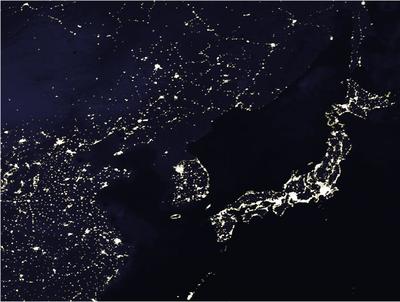This is a guest post by G. Willow Wilson, in response to this discussion thread at Talk Islam.
The reason I don’t like discussions about the situation of white Muslims as a community, or the power relationships between white converts and their birth culture (ie, the loss or retention of white privilege), is because I do not believe there is any such thing as a white Muslim community. There is only a white Muslim here, a white Muslim there. The very fact that we have chosen to be part of this religion means that our experiences are radically divergent from the majority of other white westerners. What those experiences were differs quite a bit from convert to convert. Some people were unhappy with the status quo and saw Islam as a purer, more moral way of living. Some married in. Some had spiritual epiphanies. Some started out in other Abrahamic faiths but felt there was something missing. The differences don’t stop there: we’re from different classes, different parts of the West, different cultural backgrounds. In other words, despite the fact that we try and try to build a single narrative for ourselves, we have very little in common.
We are not a community. We are statistical outliers. A tiny minority in a religion that is overwhelmingly non-white and overwhelmingly non-western. So why do we keep trying to build a narrative about white Muslims? Why so much attention to what we do or do not represent?
Simply put, because the one thing we do have in common is that we were raised at the center of our civilization. Whether we were rich or poor, educated or not, as whites we were the main characters in the story of our culture. Letting go of that expectation-that we will be protagonists in the unfolding saga of our community-is next to impossible, no matter how humble and pure of heart one is. I’m talking about something that runs much deeper than racism here. To me, the impulse to narrative-build, whether self-congratulatory (I have lost white privilege, hurrah!) or self-flaggelating (I can never lose white privilege, oh how I suck) is a symptom of this inability to let go.
We are guests-protectorates, wards, bit players-in the Islamic narrative. If this was a Shakespearean drama, we’d be Second Spear-Holder From The Left. What we contribute to that narrative will, in all probability, never be of direct benefit to us as individuals. We will always be outliers, both in our birth communities and in our religious communities. Our significance, and more importantly, our relevance, is massively exaggerated. By adoring Muslim communities who hold us up as coddled symbols of the power of Islam? Mais non. By ourselves. If we become coddled symbols, it is because we let it happen. And, in all probability, encouraged it. Consciously or unconsciously. Because that is what we were raised to expect: centrality. Whether the story is tragic or comic, it is always about us. If it isn’t, we hardly know what to do with ourselves.
We don’t really represent any experience but our own. There is some freedom in that-approached in the right spirit, it has its advantages. Being an outlier is not the same as being an outcast. But we should resist the urge to create a communal narrative where none exists. There are almost no general statements one can make honestly about white Muslims. Some retain more privilege than others, but the reasons why are not always as clear-cut as habits of dress and social interaction. I wore traditional hijab to a recent comics convention in Seattle. I was the only covered woman in a crowd of many thousands of comics enthusiasts, a population with an anecdotally higher ratio of atheism and heterodox religious ideas than the mainstream. I was curious to see what this would do to my book sales. I sold out before the end of the first day. So I’m not sure I buy the idea that hijab automatically deducts points from one’s social status, or from one’s ‘whiteness’.
I’m not saying we have to gag ourselves or keep silent, though for a long time that is exactly what I thought. But we do have to realize that there is less ‘we’ than we’d like to think.
Willow is the author of the graphic novel Cairo
and the award-winning series Air: Letters from Lost Countries
. She graciously gave me permission to reprint her comment from Talk Islam above. Also see her earlier comments about the difference between American and Egyptian Islam.

